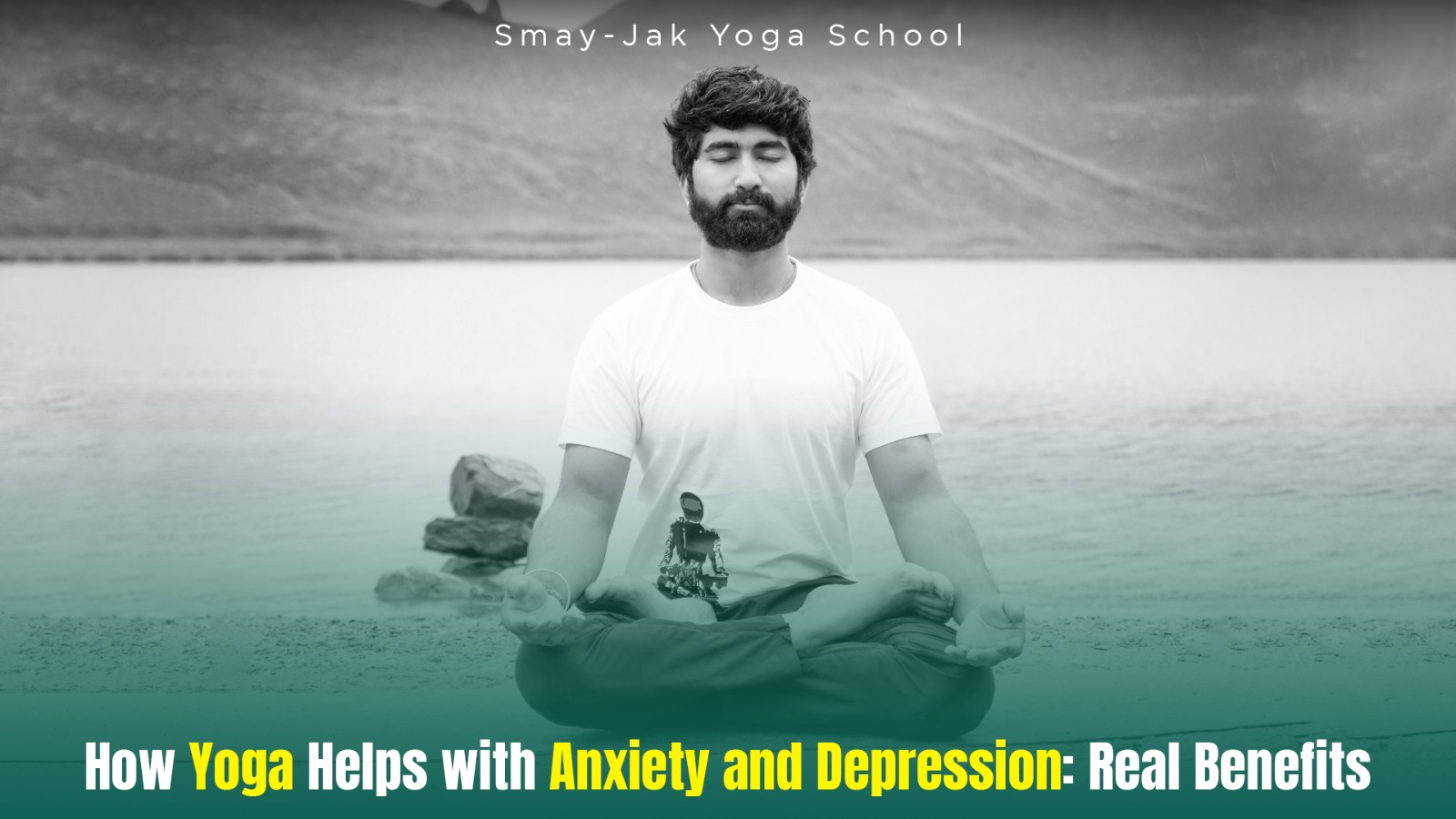Namaste! My name is Acharya Kartikey, and today, I’m here to share insights on how yoga serves as an effective tool to combat stress, anxiety, and depression. Many people view yoga as a mere physical activity, but it is much more—it’s a holistic practice with profound mental and emotional benefits. Let’s explore how yoga nurtures mental wellness, relieves stress, and empowers you to manage anxiety and depression effectively.
The Holistic Approach of Yoga
Yoga comprises several essential elements, including Yama (ethical disciplines), Niyama (observances), Asana (postures), Pranayama (breath control), Pratyahara (withdrawal of senses), Dharana (concentration), Dhyana (meditation), and Samadhi (state of bliss). Each element, if practiced correctly, helps in achieving overall well-being.
In today’s fast-paced world, many of us are constantly under stress due to work demands, societal pressures, and internal struggles. Gradually, this stress builds up, much like a pot filling with water drop by drop, until it overflows and manifests as anxiety, restlessness, or even depression.
Understanding the Roots of Stress and Depression
Life’s demands often compel us to do things we’d rather avoid. Whether it’s working a job we don’t love or dealing with difficult situations, these unfulfilled desires and suppressed emotions build up, forming a steady undercurrent of stress. This continuous stress increases the likelihood of depression as our minds become burdened by feelings of inadequacy, low self-esteem, and self-doubt.
The Transformative Power of Yoga
When you engage in yoga regularly, it becomes a cleansing process for your mind and body, helping you to release accumulated stress, just as you would clean your home each day. This doesn’t mean stress disappears altogether, but regular practice helps you manage it effectively and prevents it from overwhelming you.
- Physical Activity and Energy Flow: The physical movement in yoga, such as Surya Namaskar (Sun Salutation), boosts circulation and energy, dispelling physical inertia and reducing laziness. When you begin to feel more energized, you’re more likely to maintain a positive outlook, and less likely to succumb to depressive thoughts.
- Releasing Stress: Through regular yoga practice, you develop resilience against stressful situations. Imagine performing ten rounds of Surya Namaskar, only to be challenged to start over. This controlled, intentional exposure to stress helps train your mind to remain calm, composed, and resilient under pressure.
- Emotional Cleansing: Yoga encourages you to “vomit out” negative thoughts. With each practice, you develop the courage to speak your truth, share your thoughts, and ask for what you need. This release of internalized stress acts as an emotional cleanse, freeing you from overwhelming thoughts and anxieties.
- Mental Clarity through Pranayama and Meditation: Pranayama, or breath control, purifies your mind, clearing out negativity and allowing you to focus. When you meditate, you build a stable mindset that reinforces positive thinking and calmness, while Pratyahara (withdrawal from external distractions) helps you deepen this connection with yourself.
- Mood Elevation and Hormonal Balance: Regular yoga practice stimulates the release of dopamine, a hormone responsible for happiness. This, along with an elevated mood, counters the symptoms of depression and anxiety. A body energized by yoga is less likely to feel low or anxious.
From Anxiety to Calmness: Yoga as Your Guide
Through yoga, you can gradually eliminate the detrimental effects of anxiety and depression. Each session leaves you feeling refreshed, energized, and better equipped to handle life’s challenges. Rather than a quick fix, yoga offers a lifelong practice of emotional stability, inner peace, and physical wellness.
The journey to mental well-being through yoga may seem gradual, but it brings profound, long-lasting change. So embrace yoga—not just as an exercise, but as a path to emotional freedom, clarity, and happiness.





